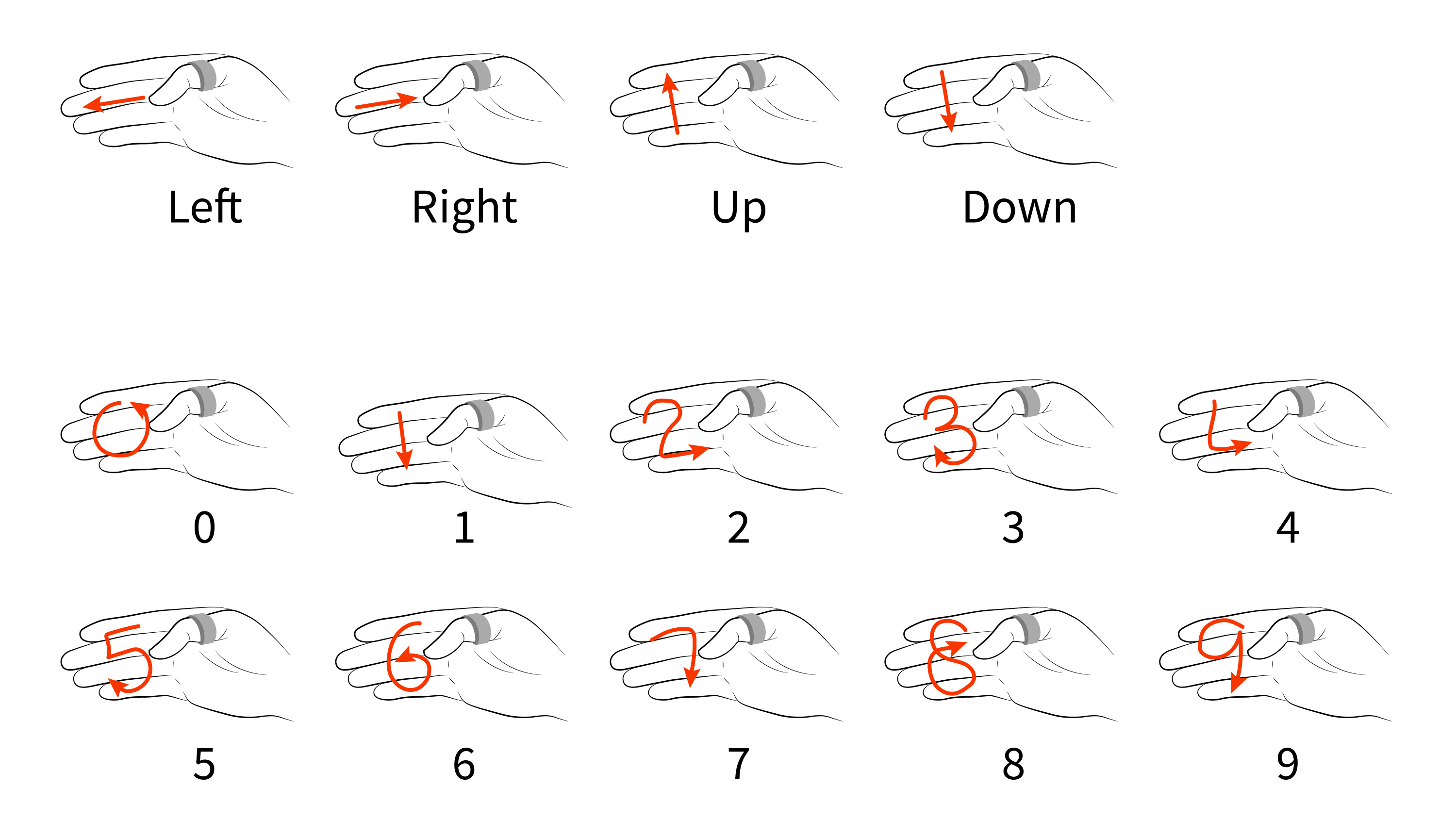This smart ring lets you write words and numbers with your thumb
A whole new kind of body language

Those of you who own a smartwatch will be familiar with a major drawback of any wearable device that has a smaller screen than a smartphone – text input is a real pain.
But a team of wearable computing engineers at Georgia Tech has developed what looks like a potential solution. It's a smart ring that lets you trace letters and numbers with your thumb, allowing easy, silent text input on even the tiniest screens.
“A ring augments the fingers in a way that is fairly non-obstructive during daily activities. A ring is also socially acceptable, unlike other wearable input devices,” said Cheng Zhang, the Georgia Tech graduate student who created the technology.
How it works
The system, which is called Fingersound, works pretty simply. The ring has an on-board gyroscope and microphone which detect when the user places their thumb over their fingers and begins to draw a shape. Once the shape is recognized, it can give tactile feedback.
“Our system uses sound and movement to identify intended gestures, which improves the accuracy compared to a system just looking for movements,” said Zhang.
“For instance, to a gyroscope, random finger movements during walking may look very similar to the thumb gestures. But based on our investigation, the sounds caused by these daily activities are quite different from each other.”
Easy to use
The team says that the result is a system that is always available and easy to use. “When a person grabs their phone during a meeting, even if trying to silence it, the gesture can infringe on the conversation or be distracting,” explained Thad Starner, the Georgia Tech School of Interactive Computing professor leading the project.
Get daily insight, inspiration and deals in your inbox
Sign up for breaking news, reviews, opinion, top tech deals, and more.
“But if they can simply send the call to voicemail, perhaps by writing an ‘x’ on their hand below the table, there isn’t an interruption.”
The full details of the project were presented at Unicomp and the ACM International Symposium on Wearable Computing earlier this year.
